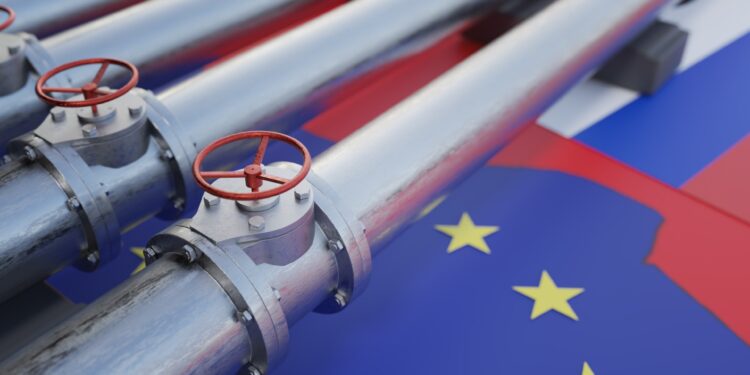The European Union is scheduled to announce tomorrow, Tuesday, a road map for the gradual disposal of the remaining Russian gas supplies, but in the absence of sanctions it will be difficult for buyers to cancel contracts using legal options such as force majeure.
The road map to be announced at a time when the United States is pressuring Russia to reach a peace agreement with Ukraine, and an agreement may lead to a reduction in sanctions on Moscow and opens the door again to Russian energy sources.
About 19% of the gas supply to Europe still comes from Russia through the pipeline of the Turkim Stream and LNG shipments, and the European Union has a non -obligatory plan to get rid of Russian fuel imports by 2027.
Legal options
A senior European Union official said last month that the commission is studying legal options that allow European companies to exploit the situation of the force majeure and annul their contracts to buy Russian gas without being subjected to sanctions, in addition to measures to prevent companies from concluding new contracts to import Russian gas.
Lawyers and analysts expressed their doubts about the feasibility of resorting to the state of force majeure, given the expiration of years since the European Union pledged in 2022 to stop the imports of Russian gas after the outbreak of the war in Ukraine.
The independent lawyer in the field of energy specialized in LNG contracts, Anchka Asun, said that the declaration of the force of the force majeure requires a violation of the contract from the supplier by not delivering shipments for example, but the size of the remaining Russian supplies has proven effective over 3 years since the outbreak of the war.
“Any deliberate action taken by the European Union is already weakening its position on the state of force,” Asson added.
The most effective procedure
Legal experts say that imposing sanctions on Russian gas imports is the most effective measure for the gradual disposal of supplies.
This requires unanimous approval from all 27 European Union countries, but Slovakia and Hungary sought to maintain close political and commercial relations with Russia.
Since the outbreak of the war in Ukraine, Russian Gazprom and European companies filed lawsuits for gas contracts that are not committed to its provisions and the failure to pay, and Reuters is estimated to be based on judicial documents of the value of these disputes at about 18.5 billion euros (21 billion dollars).
The contracts concluded with Gazprom include the condition of “receipt or payment”, which is obligated to buyers who refuse gas shipments to pay up to 95% of the value of the contracted quantities.



